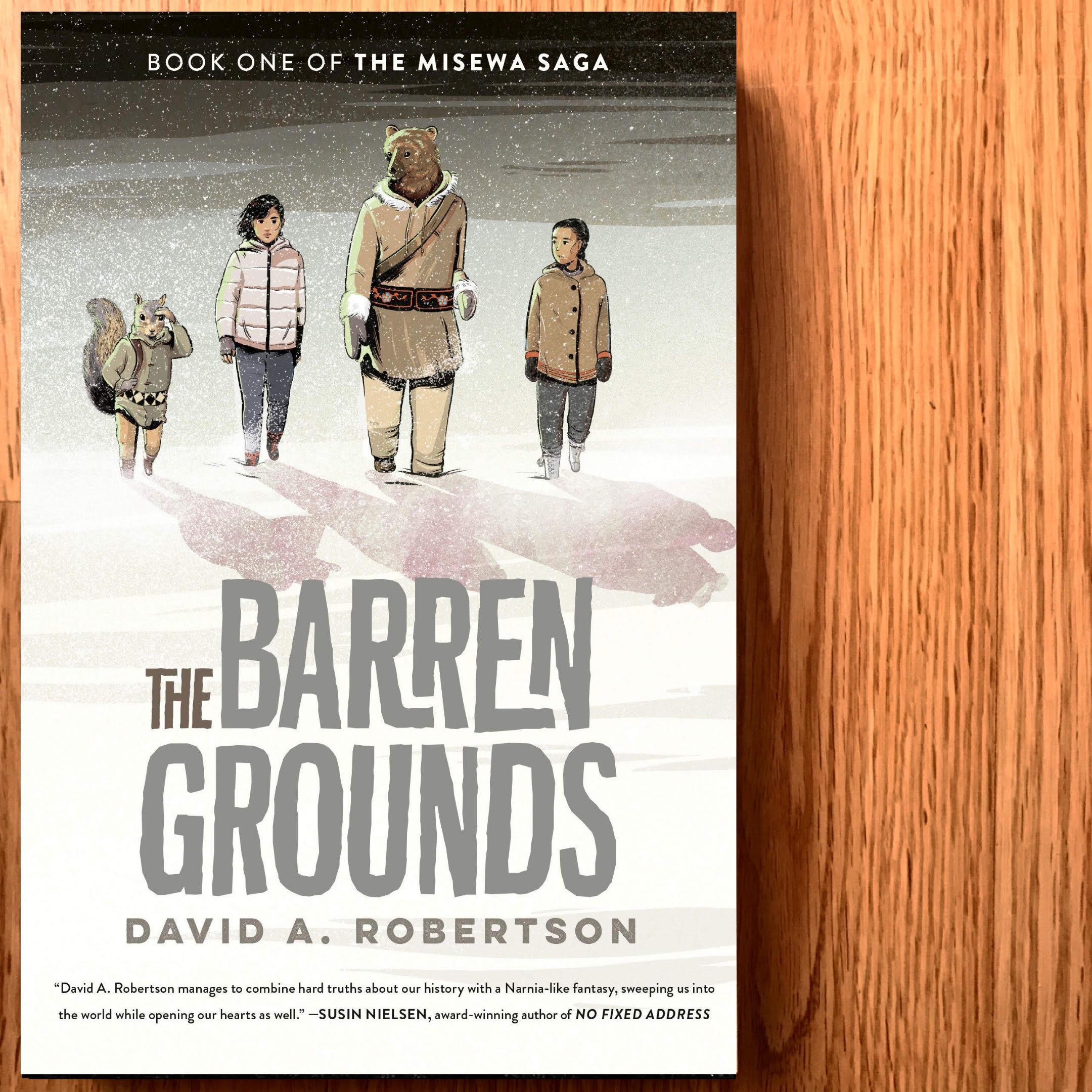By Christine McFaul
The Barren Grounds by Canadian author David A. Robertson is a middle-grade fantasy novel and the first book of the Misewa Saga series. I actually chose it as my most-anticipated Cloud Lake read for this fall (see Volume 3, Fall 2021 for further details), and I’m excited to get into the nitty-gritty of the reading experience.
A quick note on art, although some middle-grade novels contain illustrations, this one does not. It doesn’t require them. Robertson’s words create a visceral and visual world that is easily imagined. I will mention, though, that the cover art is stunning and perfectly sets the tone for the text before the book is even opened.
Touted as a retelling of the classic C.S. Lewis series, the book is described as: “Narnia meets traditional Indigenous stories of the sky and constellations in an epic middle-grade fantasy series.”
The story is told in the limited first person by Morgan, a 13-year-old First Nations teenager who has, during her short life, lived in a variety of white foster homes in Manitoba. Two months into her newest placement, she gains a younger foster brother, a quiet and artistic 12-year-old Cree boy named Eli. Morgan and Eli feel disconnected at home, don’t fit in at school, and barely get along with each other. So, it isn’t surprising that when they discover a portal that leads, Narnia-like, to a magical world beyond, they have very different ideas about what to do. Eli, recognizing an affinity for what lies ahead, is eager to explore, while Morgan, seeing only potential pitfalls in the unknown, prefers to stay put in the real world. The two argue, and Morgan says hurtful words to Eli. Later, he disappears through the portal, and Morgan must follow him into the barren grounds of Misewa to apologize and convince him to come home.
Once there, Morgan discovers that the Misewa community—in the frozen grips of the White Time—is on the brink of starvation and cannot survive much longer. Determined to help, she reunites with Eli and the two join forces with Ochek (Fisher), the last hunter of Misewa, and Arik, a squirrel with excellent comedic timing. Their unlikely crew embarks on a dangerous mission to end Misewa’s frozen misery and bring back summer.
In Misewa, Morgan and Eli speak “the good language,” or Cree, learn the traditional way of surviving, and connect with Indigenous stories and philosophies.
“Kiskisitotaso…I know that word,” he said. “In English, it means something like, ‘Don’t forget about who you are’….”
Robertson deftly uses both the contemporary and fantasy settings (and sometimes the tension between them) to explore themes of identity, family, culture, alienation, and connection in heartbreaking, humorous, philosophical but always relateable teenage ways.
To me, one of the most interesting aspects of Robertson’s narrative is his study of anger, and ultimately, forgiveness. Explored through the narrative itself, as well as through teachings, these twin concepts are unravelled throughout the story in many interesting and nuanced ways.
I entered into this reading experience with high hopes and The Barren Grounds delivered. Morgan is one of my favourite types of female protagonists, angry but with a sense of humour about it, good-hearted but not a goody-goody, strong, smart, and above all, interesting. Voice, which can be tricky in the middle-grade category, and worldbuilding, which can make or break fantasy, are both executed seamlessly. I am looking forward to getting my hands on the next book in this series and curious to see whether there will be a shift to Eli as the narrator or stick with Morgan? Robertson seems to leave the door open to either of those possibilities.

